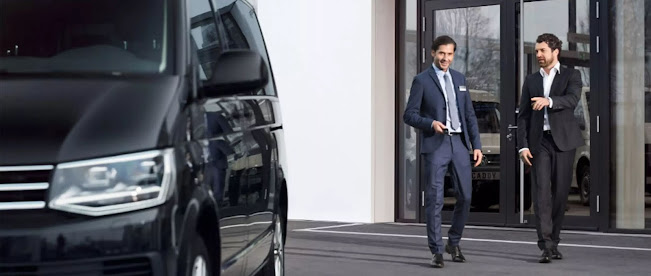Factors to Keep in Mind While Leasing a Commercial Van?
 |
While
running a business, you need to have a van to promote your business. Deciding
on where to acquire a van easily and cost-effectively can be tricky. You must
be wondering to find the best way to have a van for your business. You may have
considered hiring or perhaps buying option. But van leasing is the most popular
and effective option due to its substantial benefits. Let’s learn about the
benefits of leasing a van and the points you need to consider while opting for
van leasing.
What Is Van Leasing, and How It Is Beneficial?
Commercial
van leasing works as an agreement for a set period. The typical time for
leasing is between 24 to 60 months. During this period, you have to pay
pre-agreed monthly payments for the van to one of the reliable van leasing
companies. You can opt for the most popular manufacturers for leasing, such
as Citroen van lease, depending on what
works well for everything your business needs. Leasing allows you to budget
your spending and start your business without debt. Look at the benefits of
leasing a commercial van:
- When it comes
to monthly payments, you can claim up to 100% of tax, given that your business
is VAT registered, and you will have to use the van only for business
purposes.
- You may get
peace of mind and not require an MOT if the van is less than three years
old.
- Another
benefit you will get is the new and up-to-date vans.
- You can decide
among the best brands on the market.
- You can run
your business without any issues impacting profits.
4 Factors to Consider While Leasing a Van
Leasing a commercial van instead of buying it is an excellent option for starting a business. Van leasing comes with several benefits, including lower monthly payments, a new car, and lower upfront costs. However, before getting into it, you need to know several factors. Here are some important factors to consider when leasing a commercial van.
Open-end vs closed-end lease
While proceeding to the negotiation stage of van leasing, you will get offered two options: an open-end lease and a closed-end lease. In the case of an open-end lease contract, the customer needs to pay the difference between the residual value and the actual resale value at the end of the lease period. However, in a closed-end lease, the customers pay only extra mileage and the costs for damages to the van.
Residual value
It is the value of the leased van at the end of the lease period. It depends on the amount and the rate of depreciation on the van. Now you need to understand that the longer the term of your lease, the lower the residual value would be. Because, at the end of the lease, the van will get older.
Length of lease
The van leasing usually gets offered in two lengths;
short-term lease
long-term lease.
Short-term van leasing can get more costly than the long term because the residual value goes down faster within the first two years of leasing. When you opt for a longer lease, the monthly payments will get lower.
Estimated annual mileage
Before going into a lease, you need to estimate the annual mileage for the use of the van. The typical lease might have 12,000 miles in a year. But if you think you will consume more than that in a year, it is worth paying extra for the additional mileage. Otherwise, you will be required to pay this amount at the end of the lease.
Takeaway
Leasing instead of buying allows you to get several benefits, such as a new cat, fewer monthly payments, and no issues. You need to make sure to keep the points into consideration before signing a lease agreement, as they can save you from any confusion in the long run.


.jpg)

Comments
Post a Comment